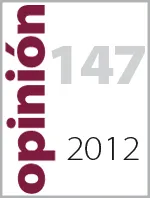The Union for the Mediterranean: Survival in a Time of Crisis

Eduard Soler i Lecha,
Research Fellow, CIDOB
3 May 2012 / Opinión CIDOB, n.º 147 / E-ISSN 2014-0843
In a time of budget cuts the dictum that nothing is harder to get rid of than an international organization is less and less valid. In this regard, voices are beginning to be heard proposing, pure and simply, to put an end to the Union for the Mediterranean (UfM). A drastic measure that for some would mean the settling of a score with the Sarkozy who tried to re-nationalize Euro-Mediterranean policy and for others just another way to rein in southern spendthrifts.
The UfM cannot offer, for the moment, a brilliant service record, since it has been subject since birth to political roadblocks and its projects are moving along very slowly. Political instability in the Arab world, in conjunction with the intensification of an economic crisis that undermines the foundations of the European integration process and greatly weakens the countries of Southern Europe, makes it even more complicated to extract the UfM from the blind alley it finds itself in. The present-day context is not very conducive to raising funds for Mediterranean projects. Neither is it for the European leadership to find time and energy to resolve the structural problems facing the UfM. Of the problems that must be addressed the most outstanding is the necessary institutional simplification that would make it less vulnerable to political boycott, give the Secretary General greater room to maneuver and make the organization less dependent on the good will of the national states to contribute voluntarily personnel and economic support.
Even so, during the first half of 2012, two decisions have been taken that offer a contrast to this somber outlook. First, the rapid February appointment of a new Secretary General, Fathallah Sijilmassi, a process which years ago would have required months of negotiations and which guarantees a certain institutional stability. And, in addition, the announcement this week by the European Investment Bank (IEB) that it will contribute 500 million euros for the financing of those UfM projects that find themselves at an advanced stage of development between 2012 and 2013, and that meet the economic, social and environmental criteria of the IEB.
At this stage, none of the region's problems will be solved by liquidating the Union for the Mediterranean, particularly if it is not to be replaced with a more agile framework of relationships. Much to the contrary, it would contribute to the increasing impression of many Mediterranean partners that the European Union is abdicating its responsibilities in the region. While many Europeans are undergoing a sort of "Mediterranean fatigue," among the elites and the citizens of the Arabic countries a "European fatigue" is taking root, as they verify how scarce the resources the EU is providing for economic development are, particularly in comparison with the efforts made in the past for the countries of Central and Eastern Europe, and how immigration continues to be presented as a threat in European political debates.
In a context in which multiple crises, budgetary austerity, and faint political will are converging, the UfM could become a residual and irrelevant organization. The path to salvation for the UfM and, more concretely, for its Secretariat, should be a workable strategy, composed of baby steps, discreet actions, and modest but tangible results, with an eye towards 2014. That is the year when the new financial perspectives will come into effect, key countries such as France, Germany, Egypt and Israel will not be facing crucial elections, the European economy could begin to show signs of recovery, and perhaps there will be greater certainty regarding the direction political change is taking in Northern Africa and the Middle East.
In order to justify not only its existence, but also an increase in resources, between now and 2014, the Secretariat must at least achieve a few concrete objectives: for example, a greater commitment on the part of European institutions, taking advantage of the fact that the High Representative will take on the northern co-presidency; the operative launch of a dozen projects of considerable magnitude that imply the total mobilization of over a billion euros; the contribution by a broad majority of the 43 members of the UfM of financial resources or personnel to the secretariat; achieving consolidation as an agent that unites wills and multiplies results, strengthening the relationship, for example, with the EIB; and finally gathering a broad network of collaboration not only with economic and political actors but also with opinion leaders and members of the civil society.
Survival can also imply transformation. A transformation that can include bringing greater agility and simplicity to the institutional governance of the UfM, adapting its mission according to the evolution of the political and economic situation of the region, or articulating a closer relationship with Europaid, the development agency of the European Commission, to the extent that the Secretariat might act as its antenna for the Mediterranean but with the participation of the Mediterranean members and of the IEB.
Despite the broad range of scenarios, it is clear that in the short run the circumstances will not be in place for the celebration of a Euro-Mediterranean summit or meeting of foreign ministers. Therefore, achieving at least a few of the abovementioned goals or beginning the metamorphosis of the secretariat will have to be done from below, with the support of the senior officials and without waiting for a push from the European and Mediterranean leaders. In order for the UfM to survive these times of crisis, perhaps the only plausible thing is to apply the pragmatism of baby steps and demonstrate, both to itself and to its northern and southern partners, that it is capable of moving forward on its own.
Eduard Soler i Lecha,
Research Fellow, CIDOB